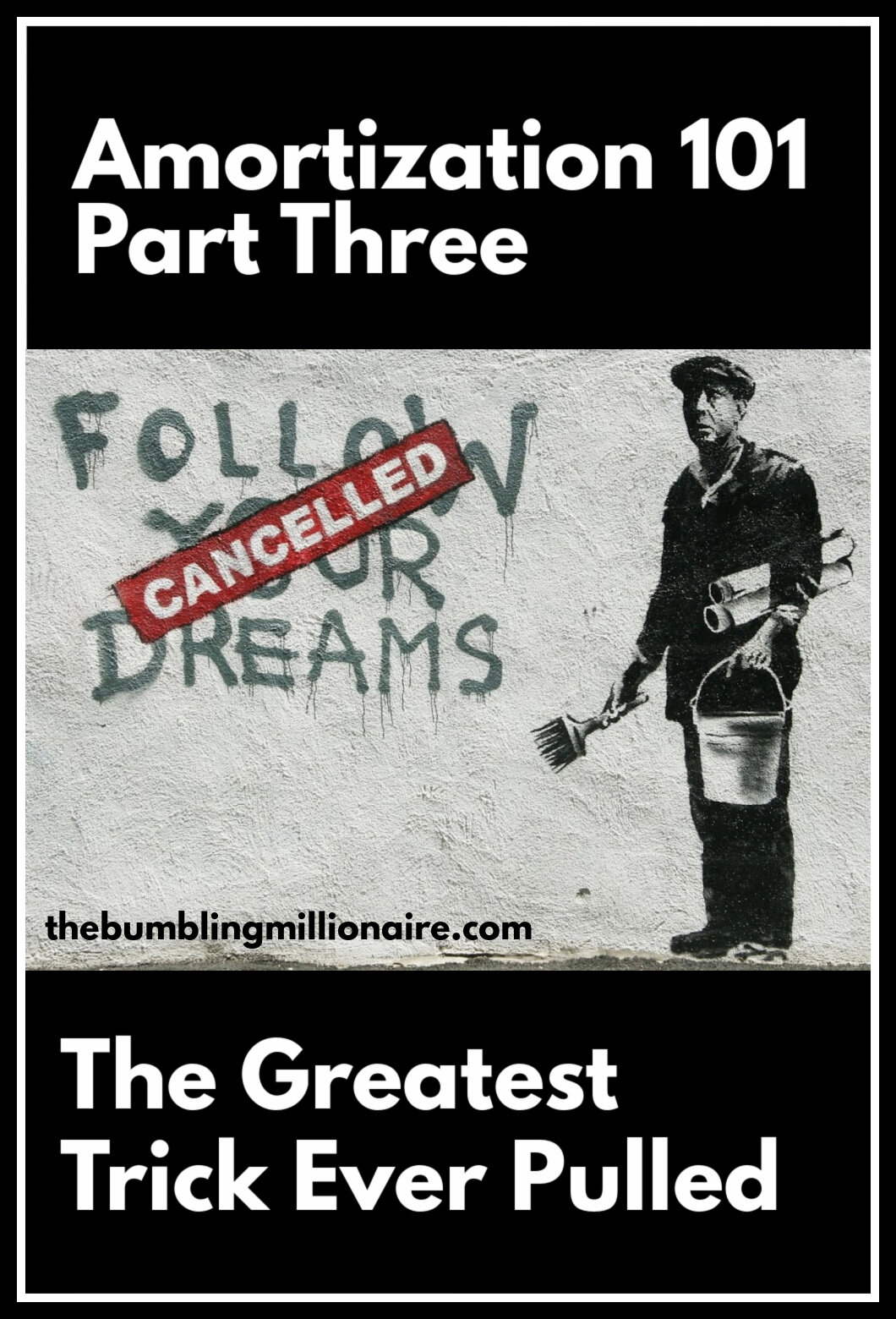Sometimes You Have to Ignore the Voice in Your Head
/This post may contain affiliate links. Learn more by reading my disclosure.
Creating The Bumbling Millionaire and then developing weekly content for it has been a great experience. It’s allowed me the opportunity to meet other bloggers who are creating some really great work. Studying their content has given me a goal to strive for each week and beyond.
I’ve also had the chance to connect with some readers who have had questions about some of the articles I’ve written. In thinking about how they have responded, it’s given me new ideas for articles as well as a potential road map for the future.
The entire process has allowed me to sharpen my writing, both in voice and in time of production. I wake up every morning and spend an hour or two creating something new. I believe each day is helping me develop a stronger presence within my words as well as decrease the time to actually produce an article from idea to post. It’s a wonderful and heady experience.
Above all, though, it’s finally given me the opportunity to grow more comfortable with "The Little Editor," that entity on my shoulder who questions every move I make with my writing.
The Little Editor
I didn’t create The Little Editor concept.
I learned about it from Lawrence Block’s Write For Your Life. Block is my favorite mystery writer and he’s written two series about characters I absolutely love: Matthew Scudder and Bernie Rhodenbarr. I won’t go into details about these guys, but if you’re fan of mysteries you should give them a try. Scudder is very serious fare while Rhodenbarr is light-hearted.
Like I said, though, Block introduced me to The Little Editor.
It was just a quick section in Block’s book on how to improve your writing, but it struck me. He even admitted to struggling with the noisy, annoying guest. The guy (he’s a guy for me since the voice in my head is distinctively male – go figure) is often loudest when a new idea strikes. “Why would anyone want to read that?” he’ll whine.
Once I push past that question, the next one he’ll inevitably ask is, “Are you even qualified to write something like that?”
As you can see, The Little Editor is full of one of the worst emotions. Doubt. He’s definitely not there to help.
When I actually start writing and the words begin to flow, The Little Editor will usually go quiet. However, if the words aren’t humming along as they sometimes don’t, TLE jumps into high gear saying, “I told you so! See you aren’t any good at this. Let’s go see what’s happening with Twitter instead.” Some mornings, it’s a straight up donnybrook with The Little Editor until the piece is done.
Unfortunately, even after the article is drafted, cleaned up and posted, TLE isn’t truly finished. He sits by, pouting and waiting for the results to come in.
Like a ding-dong, I check Google Analytics on a daily basis now to see how my pages are doing. My host provider also has a cool feature which shows me how each page is performing. If the most recent article fails to deliver the goods, then The Little Editor goes into overdrive, with almost glee. “You see! I was right. You shouldn’t have written that. No one wants to read what you’ve written.”
That happened with one article I was very happy with, not so much for the actual writing but the idea behind it. I thought Is it Time for Corporate America to Catch FIRE? was a solid idea, but it’s had a cool response. The Little Editor reminds me of it every time I look at that post.
Other articles The Little Editor hated so much that I convinced myself that I should hold off on publishing it. I didn’t post We Lead Interesting Lives for almost six weeks because TLE persuaded me it wasn’t a good idea. Then the article was read heavily and even received a couple nice comments. He didn't have much to say after that.
Haters are Gonna Hate
There are plenty of people out there who will question who you are and what you’re doing. If you’re a writer, whether it’s a blogger or traditional novelist, they’ll question why you write and then judge how you write. They’ll even comment on what you write.
I’ve written a couple crime fiction novels. One of them was Some Degree of Murder and co-authored with Frank Zafiro. That book was gritty and violent and dealt with some tough subjects. Some folks who didn’t like crime fiction would ask with crinkled noses, “Why would you write that?” They didn’t even nod toward the amount of effort it took to create the work. Instead they tore it down because it didn’t fit into what they liked to read. Even when folks claimed to like crime fiction, they’d say something like, “It’s too violent. I couldn’t finish it. I’m more of a cozy reader.”
I don’t have sour grapes. Far from it. Everyone can have their opinion and that’s cool. As a writer, we all have to develop a thick skin. We’re putting work out into the world. It’s going to get judged. Get prepared for it.
What I’m trying to point out is there will be enough people to judge your work, so you don’t need to add extra points by letting The Little Editor run wild.
The Little Editor is Never Going Away
I wanted to come up with some ideas on how to get rid of The Little Editor, but as I mentioned above even Lawrence Block gets hit with that little voice every now and then.
Learning that an accomplished author like Larry Block gets an occasional bout of doubt made me feel better.
The best advice I can give is steady writing. It’s the old adage of practice makes perfect. We’ll never really get perfect in our writing, but we’ll surely get more proficient. The more we sit at the keyboard and bang away on the keys, the better our aptitude will become. This will limit The Little Editor’s exposure to us, but he’ll still come out to challenge us any time we push the limits of our writing.
Which as writers, we should be doing all the time.






